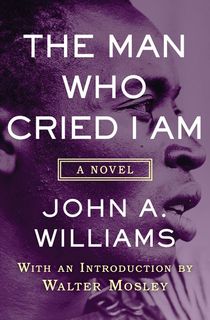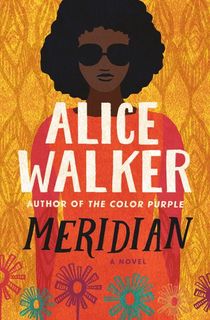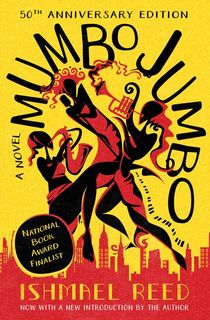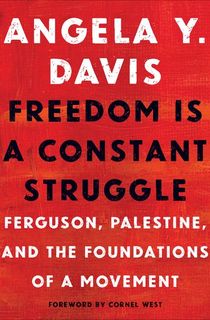For those hoping 2021 might offer something different than the parade of injustice we’ve become accustomed to, particularly Black folk who continue to be disenfranchised by police, I’ve got some news for you: things will only change for the better if we do better.
To that end, I’ve found that as a young Black man in an anxiety-inducing world, immersing myself in literature made by and for Black voices has had an incredible effect on my outlook. For other Black men like me who feel stymied by the immense challenges that lay before our generation, or anyone who seeks to educate themselves, here are ten books by African-American authors that have strengthened my resolve.

Invisible Man
Ralph Ellison’s seminal 1952 novel has long been hailed as a modern classic, and rightly so. Ever since first reading it in high school, I’ve marveled at how the distinctly Black cultural perspective depicted by Ellison resonates through the decades, particularly with the latest Black Lives Matter protests taking place in major cities worldwide.
The story is told to us through language as rich as the sweetest of yams by an unnamed Narrator recounting the story of his life, meeting all manner of vivid, often darkly funny characters along the way.

Their Eyes Were Watching God
Totally unique, hauntingly beautiful, and just an incredible read, Their Eyes Were Watching God was published in 1937, and the world has never been the same. Zora Neale Hurston’s novel masterfully examines not only racial tensions in the South, but also rigid gender roles, along with the friction those roles can and do create.
The novel’s protagonist, Janie Crawford, forces the reader to confront the harsh reality of life as a Black woman in the early 20th century—a reality in which agency is deferred to her husband more often than not. Every Black man who seeks any kind of relationship with Black women owes it to himself to read this book.

The Man Who Cried I Am
John Alfred Williams’ globetrotting postwar rumination on race and regret The Man Who Cried I Am was published in 1967, and is imbued with a powerful sense of frustration with racist institutions that continues to enlighten readers all over the world.
The story centers on expatriated Black journalist Max Reddick, who is dying of cancer. In his travels, he discovers a disturbing conspiracy to subvert the Civil Rights Movement, and along the way, encounters several (fictionalized versions of) major historical figures, including James Baldwin, Richard Wright, and Malcolm X.
Related: 10 Books That Reveal What It's Like to Be a Person of Color in America

Between the World and Me
Ever since its release in 2015, Between the World and Me by Ta-Nehisi Coates has become essential reading for Black men. Framed as a letter to his son, Coates explains through the context of his own experiences as a Black man living in the U.S. how the “American Dream” is in actuality a mirage, built through exploitation and slave labor.
So much has been said already about this work, but nonetheless, I feel comfortable adding my own voice to the harmonious chorus of “YOU NEED TO READ THIS BOOK.”
Related: 30 Must-Read Books by Black Authors

Meridian
Set in the 1960s and 70s, during the Civil Rights movement, Alice Walker’s novel Meridian peers through the eyes of its eponymous hero, Meridian Hill, as she navigates not only the turbulent social realities of the period, but a dysfunctional romantic relationship as well.
Although Alice Walker didn’t coin the term “womanist” until 1979, three years after Meridian was published, this novel centers around the core ideals of that same theory—a theory rooted in valuing the experiences of women of color.
Related: Beyond The Color Purple: 9 Must-Read Alice Walker Books

Sula
One of the true masters of the English language, Toni Morrison published Sula in 1973. Only her second novel, Sula is told through the perspective of protagonist Nel Wright, and examines her long, complex friendship with the title character.
As is the case with Meridian and Their Eyes Were Watching God, Black men can cultivate empathy for Black women by immersing themselves in this text written by a Black woman, opening their hearts and minds to experiences they may not be aware of.

Mumbo Jumbo
Ishmael Reed’s 1972 novel centers the often-stereotyped hoodoo and voodoo traditions, and directly juxtaposes the Afro-American narrative tradition with “the mainstream” (that is, literary works by white authors).
Reed’s themes and characters are unapologetically Afro-centric, and the formatting of the text itself deliberately eschews “conventional” novel writing, including elements from screenwriting as well as letters, drawings, photographs, etc. This is one of those books that has to be read to be believed, and one which provides a space for Black readers where their perspective as a reader is made explicitly valuable.
Related: Why Ishmael Reed Is the Author You Should be Reading Right Now

Freedom Is a Constant Struggle
A collection of speeches and essays from legendary social activist Angela Y. Davis, this work is critical for anyone even peripherally interested in social justice. Davis draws on a lifetime of fighting the good fight to make clear and plain the connections between state-sanctioned violence and previous movements for Black liberation.
For Black men who seek to educate themselves on these increasingly pertinent matters—this is only one of many great places to start.

Bud, Not Buddy
Bud, Not Buddy might be geared toward younger audiences, but readers of all ages will find Bud’s journey through Depression-era Michigan empathetic, humorous, melancholic, and ultimately hopeful.
After a terrible tragedy leaves him an orphan on the run, Bud Caldwell must contend with the institutional racism and economic hardships common to the period. However, in spite of his struggles, he finds love and community through jazz music, which is framed as a crucial aspect of his African-American identity.

When They Call You a Terrorist
Part autobiography, part sociological essay, When They Call You a Terrorist is an intimate account of Cullors’ life and how her personal tragedies (and subsequent radicalization) helped lead to the advent of the Black Lives Matter social movement.
Cullors offers her readers a chance to see the perseverance and strength of will it takes to effect change through Black activism. In a time where it is more important than ever for Black men to put their best foot forward, we must look to Patrisse Cullors, and other women of color like her, as an example to be followed and admired.
Related: 8 Books to Read for Juneteenth
Keep Reading: 6 Harlem Renaissance Authors Who Defined the Movement
Featured photo: Tamarcus Brown / Unsplash






